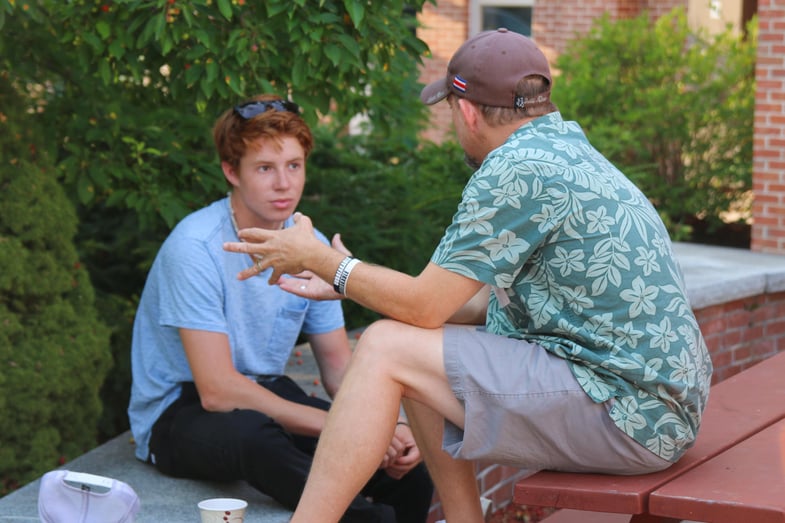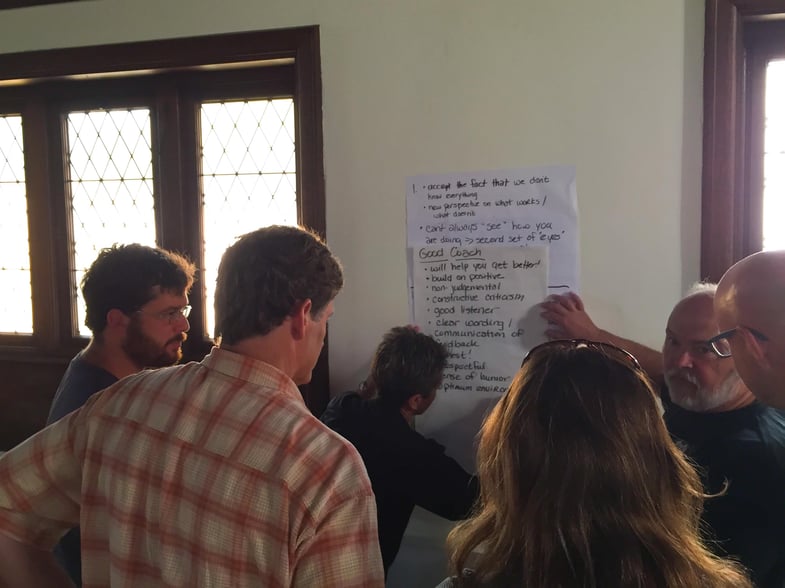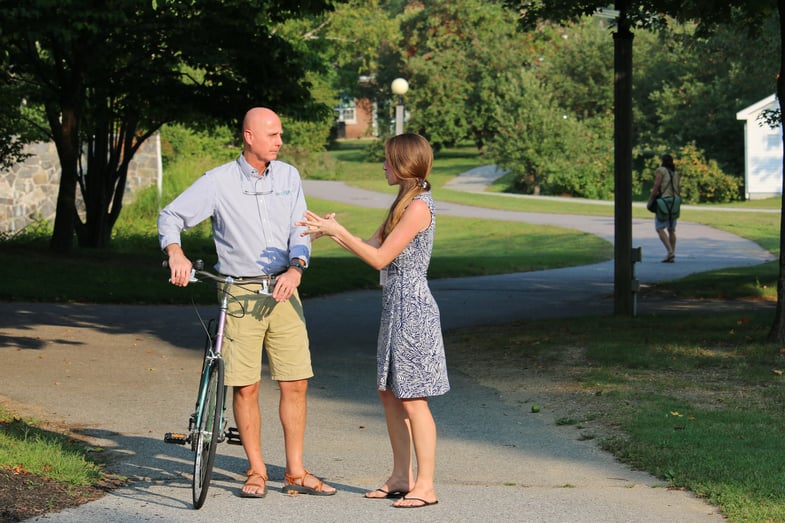Perhaps the most critical task any organization undergoes is regular self-reflection. While some may avoid this process because they are afraid of what they will see, Proctor has chosen to embrace self-reflection because we know how much better we might be able to be. Over the past five years, we have developed a Profile of a Proctor graduate, agreed upon a set of characteristics of good teaching to which we strive, conducted a NEASC self-study, undergone a faculty/trustee retreat, and developed a strategic plan that reaffirms our deep commitment to experiential education, off-campus programs, and brain-based learning.

Up until this point, much of our strategic work has been at the 10,000 foot level, thinking ‘big picture’ of who we are and why we do what we do. The processes we have completed have been incredibly valuable, but we know the most difficult part of any self-reflection is implementation.
We know our mission. It is a mission deeply rooted in every corner of campus whether you work in Admissions, Housekeeping, or the Science Department. It is a mission that transforms student lives and empowers faculty and staff to pursue their passions. This year will be a year of ‘doing’, of getting our hands dirty alongside each other as we strive to collectively get better.

This is where Teacher Learning Groups (TLGs) enter the picture. Introduced by Patty Pond (Math Department/Mountain Classroom Director), Buz Morison (Science Department), and Karl Methven (Dean of Faculty) at opening faculty meetings, TLGs are comprised of three to four teachers who will use observation and peer coaching to further guide professional development over the next ten months. TLGs build upon faculty summer reading (Mindset by Carol Dweck and Make It Stick by Peter C. Brown, Henry L. Roediger III, and Mark A. McDaniel) and the understanding that a school culture centered on a growth mindset is critical to not only student learning, but faculty growth.
Former Proctor parent, Atul Gawande P’14, wrote a piece published in The New Yorker on October 3, 2011 entitled The Coach in the Operating Room. Gawande shared his belief that his career as a surgeon had plateaued. Unsatisfied with this state, he asked a colleague to coach him in the operating room by observing and offering suggestions on how he could perform his job more effectively. While coaching on the athletic fields is culturally understood, Gawande notes, “The sort of coaching that fosters effective innovation and judgment, not merely the replication of technique, may not be so easy to cultivate. Yet modern society increasingly depends on ordinary people taking responsibility for doing extraordinary things: operating inside people’s bodies, teaching eighth graders algebraic concepts that Euclid would have struggled with, building a highway through a mountain, constructing a wireless computer network across a state, running a factory, reducing a city’s crime rate.”
He continues, “Coaches are not teachers, but they teach. They’re not your boss—in professional tennis, golf, and skating, the athlete hires and fires the coach—but they can be bossy. They don’t even have to be good at the sport. The famous Olympic gymnastics coach Bela Karolyi couldn’t do a split if his life depended on it. Mainly, they observe, they judge, and they guide.”

The message Gawande hammers home in his piece echoes that which we are striving to embrace as a school community: be humble, understand failure will occur along the way, and know there is always room to improve. We are all coaches. We are all learners. We are all on this educational journey together. Teacher Learning Groups provide the perfect opportunity to hone our craft while simultaneously modeling the growth mindset and coaching we hope each of our students embrace. Here’s to a year of ‘doing’!








